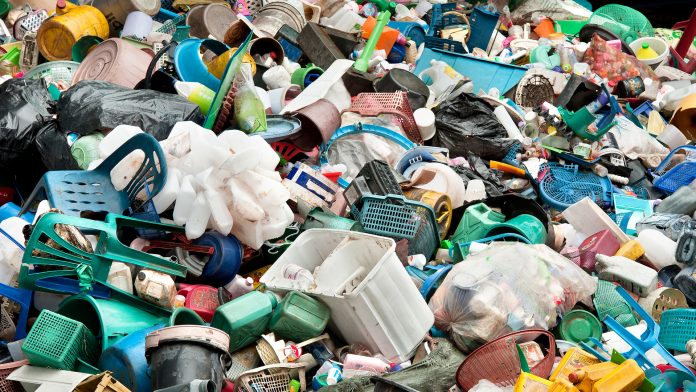Researchers from Osaka City University, Japan, have developed a novel catalyst process to recycle polyolefinic plastics, which are found in a wide variety of materials, including carrier bags, toys, and liquid fuels.
The most common plastic on earth, polyolefinic plastics, have physical properties that make it difficult to induce chemical transformation. Current recycling efforts require temperatures of at least 573 degrees Kelvin, and up to 1,173 degrees Kelvin. For comparison, water boils at 373.15 degrees Kelvin, and the surface of the Sun is 5,778 degrees Kelvin.
The researchers examined heterogenous catalysts to find a reaction that might require a lower temperature to activate. By using a catalyst in a different state of matter than the plastics, they hypothesised that the reaction would be stronger at a lower temperature.
The team combined ruthenium, a metal in the platinum family, with cerium dioxide, used to polish glass, to produce a catalyst that caused the plastics to react at 473 degrees Kelvin. While still high for human sensibilities, it requires significantly less energy input compared to other catalyst systems.
The researchers processed a plastic bag and waste plastics with the catalyst, producing a 92% yield of useful materials, including a 77% yield of liquid fuel and a 15% yield of wax. This catalyst system could help researchers use plastic wastes as raw materials for production of chemicals.
Co-author Masazumi Tamura, associate professor in the Research Center for Artificial Photosynthesis in the Advanced Research Institute for Natural Science and Technology in Osaka City University, said: “Our approach acted as an effective and reusable heterogeneous catalyst, showing much higher activity than other metal-supported catalysts, working even under mild reaction conditions. Furthermore, a plastic bag and waste plastics could be transformed to valuable chemicals in high yields. This catalyst system is expected to contribute to not only suppression of plastic wastes but also to utilisation of plastic wastes as raw materials for production of chemicals.”









